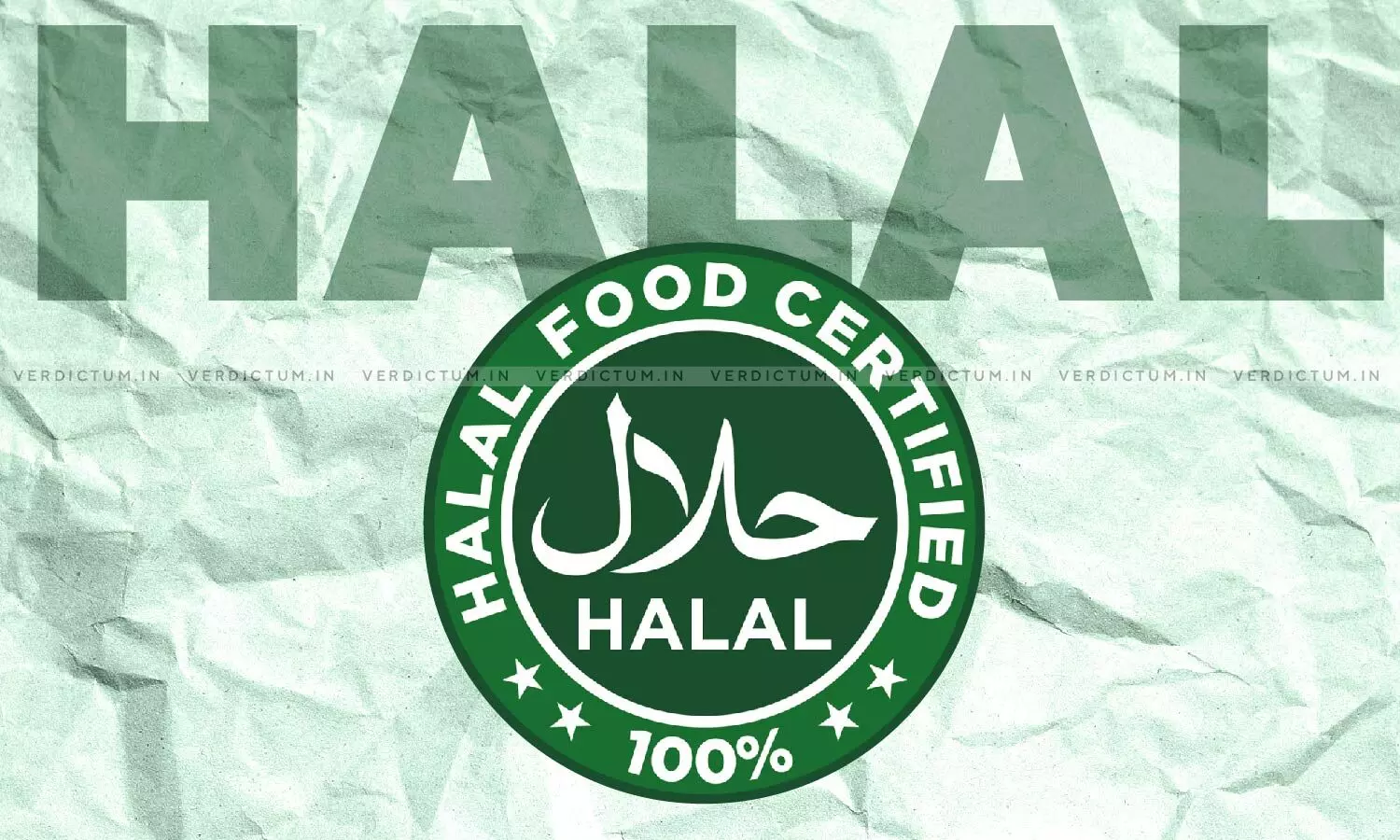
Sale Of Halal Certified Food Items Banned In Uttar Pradesh, State Food Commissioner’s Office Issues Notification
 |
|The sale of Halal certified food items has been banned in the Uttar Pradesh State. The Office of the Commissioner, Food Safety and Drug Administration, Uttar Pradesh has issued a notification with respect to the same.
The notification in Hindi dated November 18, 2023, reads, “… in compliance with Section 30(2)(d) of the Food Safety and Standards Act, in exercise of the authority vested in Section 30(2)(a) of the said Act, in view of public health, food with Halal certification is being banned within the limits of Uttar Pradesh. A ban is imposed with immediate effect on the manufacture, storage, distribution and sale of products (except food produced for export to the exporter).”
The notification says that the Halal certification is being mentioned on the labels of certain food products like dairy products, sugar, bakery products, peppermint oil, salty ready-to-eat series, and edible oils etc. and in relation to food items, in the year 2006, by repealing 8 food laws, the Consolidated Food Law Food Safety and Standards Act 2006 was promulgated, under which the Food Safety and Standards Authority of India, the apex body for food items, will implement the arrangements and powers given in the said Act.
“Under this, standards for food items have been determined on the basis of which the quality of food items is ensured. The said Act and the regulations propounded under it have preferential effect on all other legal provisions under Section 89. The authority to decide the quality of food items rests with the authorities given in Section 29 of the said Act”, further reads the notification.
Section 29 of the Act is as follows:-
"29. Authorities responsible for enforcement of Act. (1) The Food Authority and the State Food Safety Authorities shall be responsible for the enforcement of this Act. (2) The Food Authority and the State Food Safety Authorities shall monitor and verify that the relevant requirements of law are fulfilled by food business operators at all stages of food business. (3) The authorities shall maintain a system of control and other activities as appropriate to the circumstances, including public communication on food safety and risk, food safety surveillance and other monitoring activities covering all stages of food business. (4) The Food Safety Officers shall enforce and execute within their area the provisions of this Act with respect to which the duty is not imposed expressly or by necessary implication on some other authority. (5) The regulations under this Act shall specify which of the Food Safety Officers are to enforce and execute them, either generally or in relation to cases of a particular description or a particular area, and any such regulations or orders may provide for the giving of assistance and information by any authority concerned in 11the administration of the regulations or orders, or of any provisions of this Act, to any other authority so concerned, for the purposes of their respective duties under them. (6) The Commissioner of Food Safety and Designated Officer shall exercise the same powers as are conferred on the Food Safety Officer and follow the same procedure specified in this Act."
The notification also says that it is only the statutory institutions which check the related standards as per the provisions given in the Act and thus, Halal certification of food products is a parallel system which creates confusion regarding the quality of food items and is completely against the basic intention of the said Act and is not tenable under Section 89 of the said Act.
Section 89 says that the provisions of the Act will have effect notwithstanding anything inconsistent therewith contained in any other law for the time being in force or in any instrument having effect by virtue of any law other than the Act.
“That situation is derived from the definition of counterfeiting in Section 3(1)(z f)(A)(1) of the Food Safety and Standards Act, which comes under the category of crime punishable with fine under Section 52 of the said Act”, it further read.
Section 52 of the Act reads as follows:
"52. Penalty for misbranded food. (1) Any person who whether by himself or by any other person on his behalf manufactures for sale or stores or sells or distributes or imports any article of food for human consumption which is misbranded, shall be liable to a penalty which may extend to three lakh rupees. (2) The Adjudicating Officer may issue a direction to the person found guilty of an offence under this section, for taking corrective action to rectify the mistake or such article of food shall be destroyed."